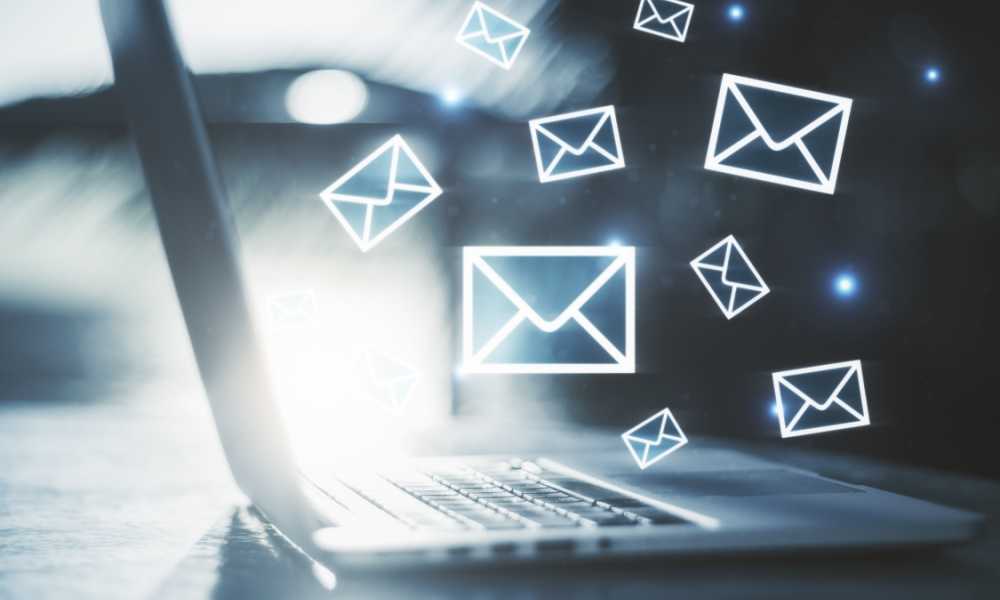Ways to End an Email: 8 Sign-offs That Inspire Action

Writing emails can be both tedious and exciting. While it is fun to put together your next pitch or marketing outreach, it can also be overwhelming to figure out how you should wrap up your email. The sign-off, in many cases, can be just as important as the way you start the email.
What then are the best ways to end an e-mail? Whether you are writing an email blast, composing an interview request, or sending another type of email, learning the best email closers is essential.
Ways to End an Email
Cheers!
Call us crazy, but using "Cheers!" as your email sign-off is one of the best ways to get a response. In addition to building up a level of familiarity with the recipient, it also makes them feel excited about what they’ve just read. Try it out!
Remember, this can even be used in more formal situations or business marketing emails depending on the overall tone of the email. "Cheers!" is fun and friendly; it can make your email feel that way, too!

Best Wishes
Does your email aim to help solve a problem for the recipient? If so, using "Best wishes" as a sign-off is a great way to end the email in a friendly and formal way.
That being said, remember that this email closing remark can make people feel a bit like they are receiving condolences. In a way, that would lead to some subtle, negative emotional reactions. For that reason, this closing should only be used if the tone matches the entire email.
Best
While using "Best" as your email sign-off might be considered a little bit safe and maybe even a little bit dull, sometimes this is the best kind of closing to wrap things up. "Best" is one of the most common sign-offs, and that’s why it's okay if it is a little boring.
After all, it’s not the sign-off that you need people to remember. Instead, you want them to remember everything else that you put together in the email. "Best" isn’t overbearing, and it will wrap the email up nicely.
Thanks in advance
When you’re writing an email that requires a response or one that you hope will earn one, writing “Thanks in advance” as your closing is a good way to make sure that you get a response. Some experts have even said that this closing gets the highest number of responses.
In a way, this closing expresses two things: gratitude and expectation. While you say that you are appreciative of them checking out the email and your request, you are also expecting something in return.
Thank you
This closing keeps it streamlined and straightforward. What more is there to say when you are finishing up an email but "Thank you"? This choice can work in nearly any type of email. It doesn’t matter if you are writing to your mom or your customers, there’s always going to be a good reason to say, "Thank you".
Business-specific
This category is a little bit harder to explain, but trust us when we say that it can really work. If you can find ways to create business-specific closings, these will be more memorable and unique to your business, content, or reason for connecting. For example, a dog walking company might want to write “See you for the next walk,” as their closing.
Sure, some of this type of closing can border on cheesy out of all the ways to end an email, but they will stand out for the creative composure. If you have a funny coworker, they can even make them amusing!

We appreciate your business
While this isn’t the most common sign-off that you are going to be reaching for, there are certain times when using a closing like this one will be incredibly smart. If your business sends out a weekly update to current customers or even something less common like a monthly newsletter, using "We appreciate your business" as closing is a smart choice. Readers who see this closing will feel that connection to your business, and that will help you out in the long run.
Thanks
Two of the email sign-offs that we have already talked about include the word "Thanks," but they include it as part of a longer sign-off. Really, it is also possible to just use “Thanks” on its own!
"Thanks" is a simple word, but it conveys a lot. This work is not overbearing, and it is also not unexpected to see in an email. Still, it's a great and safe word to use to wrap up any type of email.
Closing Your Emails is Important
Whether you are writing emails for work, personal reasons, or for marketing purposes, it’s probable that you’ve spent more time thinking about the body of your email than the closing. Don’t let that make you feel like the closing doesn’t matter.
Different ways to end an email have different effects. The closing of an email is how you sign off and say goodbye to the recipient. When you want them to remember what and why you wrote, having the right closing can make a good email become a great email.
Choose your closing carefully so that you can seal it off properly before you hit send!
